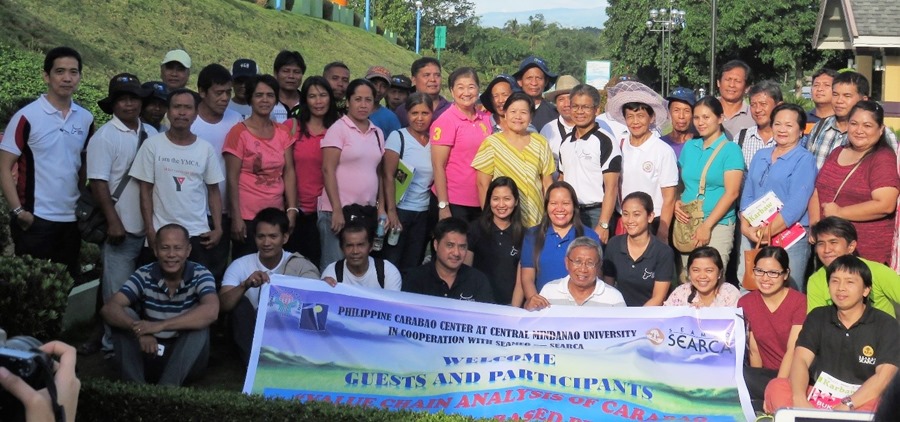The study aimed to provide an overview of the carabao industry and analyze the value chains of selected carabao-based products. Based on key findings, it presented specific upgrading strategies and policy directions to enhance the competitiveness of the industry in general, and specific value chains of selected carabao-based products in particular.
The project covered two major carabao-based products with big market potentials – (1) carabao milk and milk products, and (2) carabao meat and meat products. These were selected due to the increasing demand for high-quality dairy and meat products given the fast-changing consumer preferences, changing lifestyles, increasing human population, and increased household income in the country.
Five regions and nine provinces engaged in carabao production were included in the study: (1) Iloilo and Negros Occidental in Region 6 (Western Visayas), (2) Bohol and Cebu in Region 7 (Central Visayas), (3) Leyte in Region 8 (Eastern Visayas), (4) Bukidnon and Misamis Oriental in Region 10 (Northern Mindanao), and (5) Agusan del Norte and Surigao del Norte in Region 13 (CARAGA).
The study areas were selected based on the following criteria: (1) regions or areas with relatively large number of carabao population in Visayas and Mindanao, and also as suggested by PCC; (2) presence of SUC-based PCC centers and institutional dairy modules; and (3) presence of cooperatives and farmer's associations.
Three analytical techniques were used in analyzing the data collected, namely: (1) trend analysis for time-series data collected, (2) descriptive analysis for presentation and description of value chain players and products produced and traded, and (3) economic analysis for the profitability of milk production and selling of carabao for meat. The latter technique was also used in the computation of financial position of the different players in the dairy carabao and carabao meat value chains to determine who among the key players benefitted the most.
During the field survey, the project team conducted stakeholders' consultation workshops in Visayas and in Mindanao to validate data collected and solicit comments and suggestions on initial findings and prioritization of identified constraints and recommended upgrading strategies.
The project was able to provide the following:
- An overview of the carabao and carabao-based products situation with emphasis on global, national, and regional production and product forms;
- A description of the nature and structure of the industry, which focuses on the players and their functions in the value chain, role of women in the value chain, product and information flows, economic analysis, and nature of inter-firm relationships;
- An analysis of markets and market opportunities of carabao products;
- The identification of support services required and description of a business enabling environment;
- The identification of constraints and opportunities in the carabao industry; and
- Recommendations on upgrading strategies and policy directions.
The project team recommended interventions and upgrading strategies based on the identified constraints and opportunities in the carabao industry. Some of the major recommendations focus on the need to (1) ensure a sustainable supply of forage grass and legumes; (2) enhance the productive and reproductive efficiency of carabao; (3) secure registration and certification of carabao's milk and milk products from the Food and Drug Administration; (4) develop new or improved milk and meat products; and (5) intensify promotion, education and information campaign.
The SEARCA-PCC collaborative project on the Value Chain Analysis of Carabao and Carabao-based Products in the Philippines has produced a technical report and two forthcoming monographs – one for dairy, one for meat – for Luzon, and a final report for Visayas and Mindanao. The two VCA studies also yielded project proposals for the Carabao-based Enterprise Development Program of PCC as implemented by SEARCA through its Project Development and Technical Services. (Loise Ann M. Carandang)
